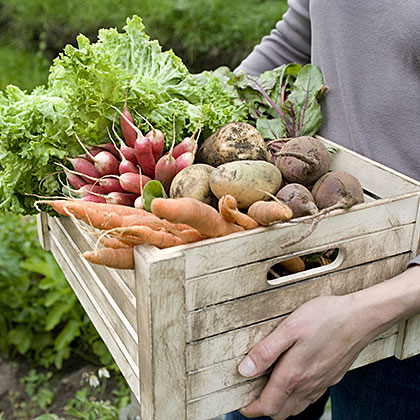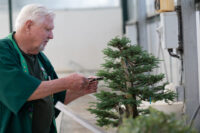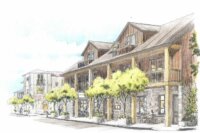The value of local food systems has been a recurring subject, made all the more important by the ongoing health crisis.
By Seth Dolinsky | Sonoma Farm Scene
The value of local food systems has been a recurring subject, made all the more important by the ongoing health crisis. Nearly nine months ago, the Springs Hall began its Farmer’s Friend program to participate first hand in addressing this question. Working with grassroots organization extraordinaire, Food For All / Comida Para Todos, the Springs Hall connected with local farms to provide fresh produce to over 100 households bi-weekly, distributing over 20,000 pounds beginning in the summer of 2020.

We learned a few things along the way. One, food doesn’t grow on trees. Well, that’s not always true, but we did discover that the availability of surplus local food is limited. Our few local farms work diligently to provide high-quality food to the lucky group that avails itself of their products. Many do not have access and, as the pandemic has taught us, many are in need.
In seeking out local foods, we were drawn to Paul’s Produce and Oak Hill Farm, the largest vegetable farms in the Valley. During the bountiful days of summer 2020, there was a surplus of produce. There were gleanings to be had and donations of excess summer crops. By fall, availability narrowed, and now in mid-Spring we are seeing a ramp-up in production. You learn a lot about the supply chain by going out to the fields. During a transition period such as now, when winter crops are tilled in and spring plantings are just starting to stretch their roots, you wonder where all the food is coming from. And you see the complexity of planning and timing that happens in the effort to keep a continuous supply available.
The Farmer’s Friend program is ongoing, with help from supporting grants and donations, allowing for local food to be purchased directly from farms, along with community gleanings of surplus produce such as, currently, citrus. The benefit of having local food production becomes evident, as well as the need to support those farms that are working to ensure that this continues. Direct purchases from local farms, for our own kitchen or for community needs, is one way to put our money where our mouth is.
Farmer Paul Wirtz has been the main provider of the highest quality local produce for these distributions. Knowing the effort that it takes to get this product in and out of the ground and onto our plates, and the burgeoning need in our community, Paul was receptive to the idea from the get-go, and provided volunteers with gleaning opportunities on the farm. Recent purchases from Paul included his amazing carrots, fresh bunches of spring radish, salad mix, and even the occasional kohlrabi. When asked about his thoughts on this effort to expand access to local foods, Paul replied “I appreciate the fact that we can pack good numbers at a fair price, and that it helps support us because we can better utilize crops that are abundant and seasonal.”
To a community in need, our farmers are our friends indeed.
Seth Dolinsky is manager of the Sonoma Valley Agricultural Cooperative, a program of the Sonoma Springs Community Hall aimed at supporting local farms and food producers using organic methods and ingredients. He is the owner of New Land Systems, a regenerative land management company. Springshall.org.






Be First to Comment